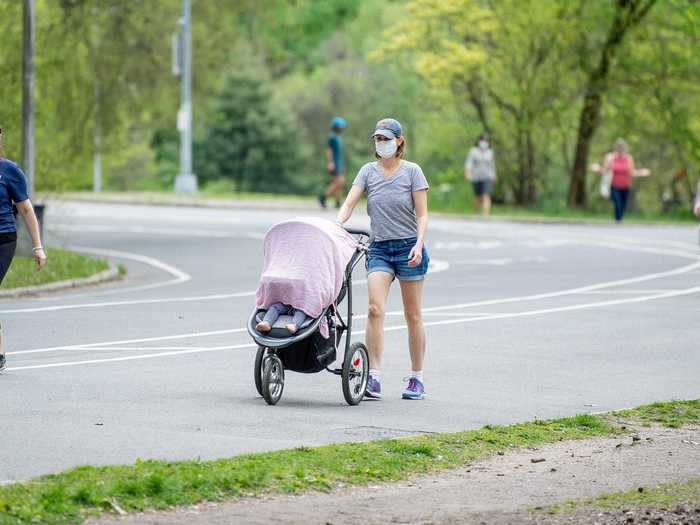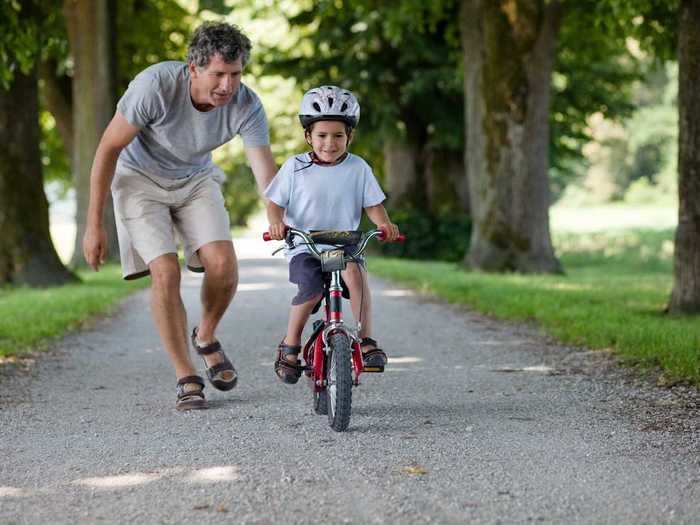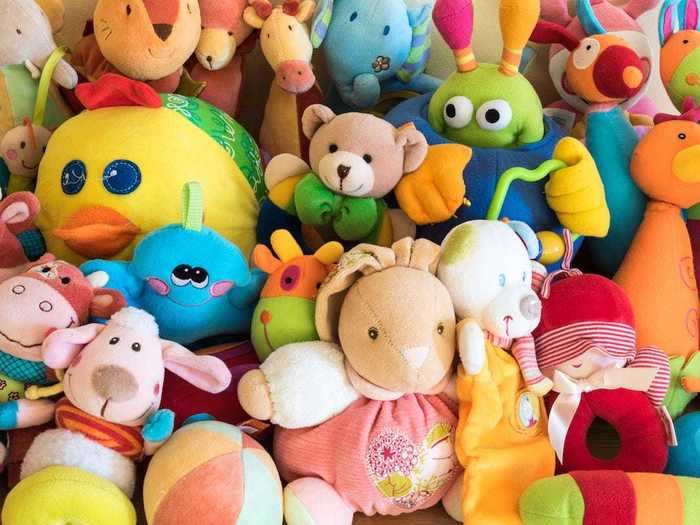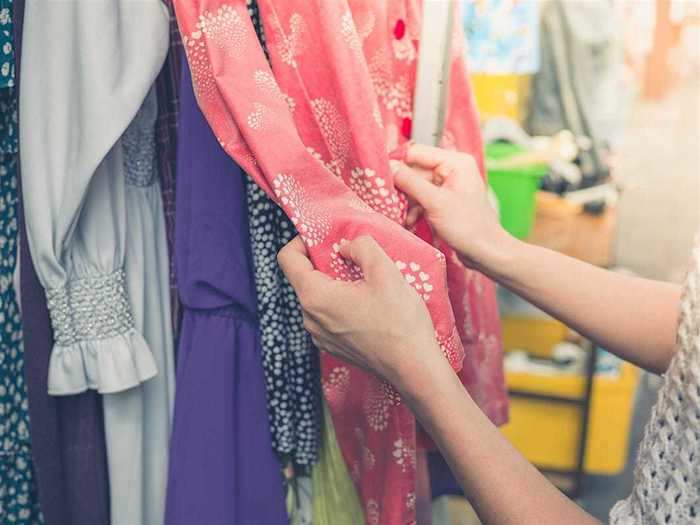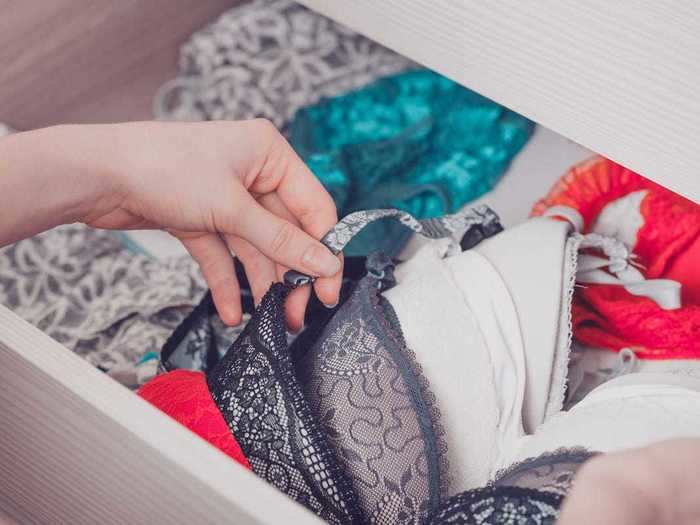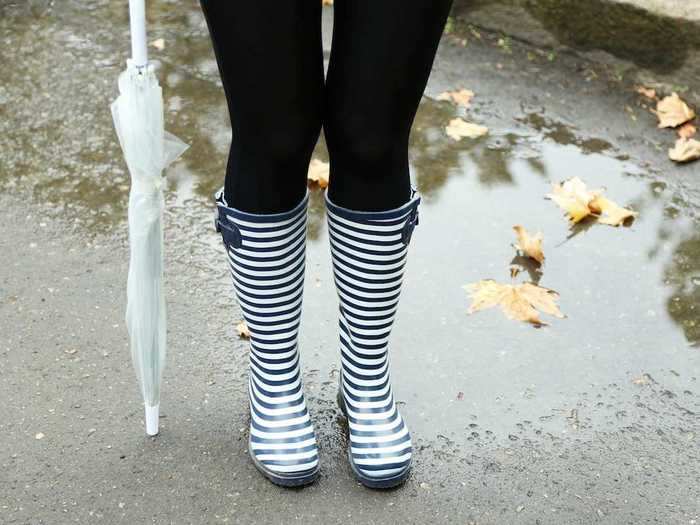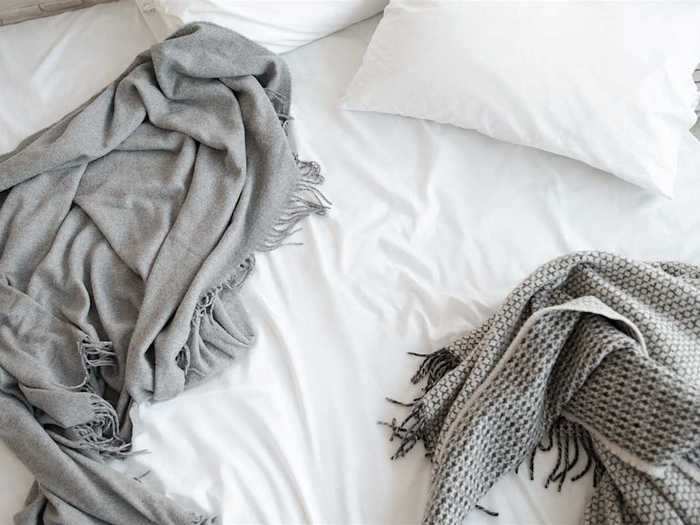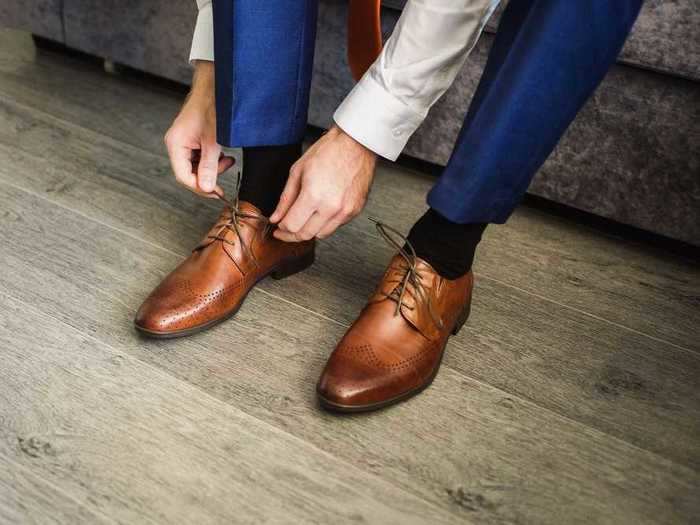You can never be too careful when it comes to children's safety equipment.
Safety standards of children's equipment changes frequently.
Roy Rochlin/Getty Images
Unlike with clothes, the faults on cribs, strollers, and car seats aren't always visible. According to the US Consumer Product Safety Commission, it's illegal for stores to sell recalled items. However, resellers like thrift stores are not required to check items for safety.
That being said, you'll want to thoroughly check any secondhand child items you're interested in buying.
Hats and helmets can carry lice and infections.
Used helmets are a major safety risk for two big reasons.
Peter Bernik/Shutterstock
That's not to mention that protective bike and motorcycle helmets are only built to withstand one impact, according to WebMD.
Because it can be difficult to know the history of used headgear, you're better off safe than sorry.
Electric appliances - especially ones that are vintage - might not work properly, so they could be a waste of money.
Always ask to try electronic items before you buy them from thrift stores.
Grace Cary/Getty Images
Kids often keep their stuffed animals close - which means they often harbor bacteria.
Stuffed animals can't always withstand being cleaned.
Pixavril/Shutterstock
Kids' teddy bears can carry germs from "drool, dead skin, and snot," according to The New York Times. That's not to mention how odors, bedbugs, mold, and other allergens can cling to them.
Of course, you can wash most stuffed toys in the washing machine, but the process can sometimes cause more harm than good by disfiguring the plush. Germs can also still linger after sanitation.
Keep an eye out for anything that looks damaged or stained.
Always inspect your thrift store finds before you purchase them.
Lolostock/Shutterstock
While most thrift stores are pretty strict about which donations actually hit shelves, there's no uniform standard for deciding which items will be sold and which won't.
Thrifting blog Bargain Babe recommends thoroughly checking anything you're considering buying to make sure it doesn't have any lingering odors or stains, and that it fits and is in otherwise good condition.
You definitely don't want to buy used undergarments secondhand.
It seems obvious, but nobody should wear previously worn underwear.
dannikonov/iStock
You might make an exception for bras and underwear that have clearly never been worn, and still have their original price tags on them. Otherwise, you'll want to avoid any garments of the sort.
The same standard applies to bathing suits.
Rain gear can be surprisingly risky.
Waterproof materials often wear out over time.
Africa Studio/Shutterstock
Waterproof jackets and rubber boots aren't always built to last.
Raincoats can become damaged after being washed or after a particularly intense storm, and many jackets simply become less waterproof over time, according to Outdoor magazine. Plus, rain boots usually wear out after a few seasons.
Linens are best bought new.
Buying used bedding is a gamble.
Golubovy/iStock
Like worn clothes and plush toys, used sheets, blankets, towels, and other linens run the risk of being contaminated with bedbugs and other germs. And unfortunately, washing such items in hot water might not be enough to fully decontaminate them.
Instead, you might want to check sale sections at department stores for inexpensive linens.
The same goes for used mattresses.
You definitely don't want to get bedbugs.
Photographee.eu/Shutterstock
Although mattresses aren't always sold in thrift shops, it probably isn't be the best idea to buy one if you come across it.
After all, mattresses, bed springs, and other bedroom furniture are some of the most common places to find bedbugs and other mites — and you certainly don't want to bring them into your home.
Secondhand shoes can be tempting, but they aren't always worth the risk.
It's worth the extra money for new shoes.
iiiphevgeniy/Shutterstock
If you buy shoes secondhand, you could be exposing yourself to any fungus or skin issue the previous owner had, according to thrifting blog Six Dollar Family.
Natalie Tincher, the founder and principal stylist at BU Style, a personal styling company based in New York City, previously told Insider that some shoes' insoles can be replaced — potentially making them more sanitary — but if the shoes don't fit perfectly, you shouldn't buy them.

